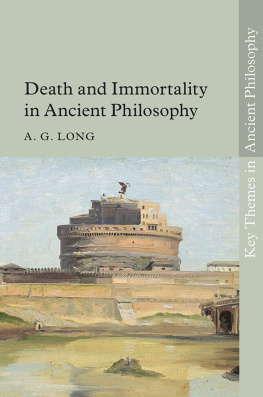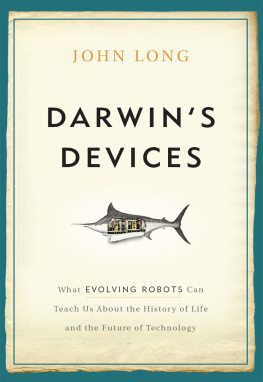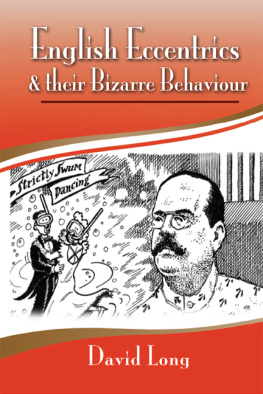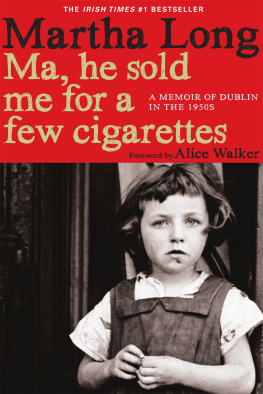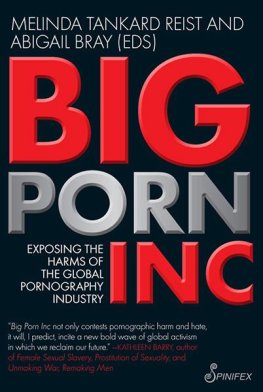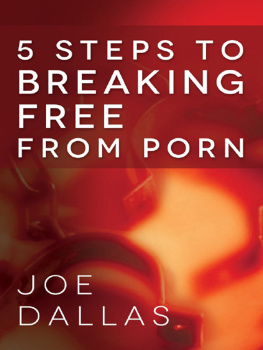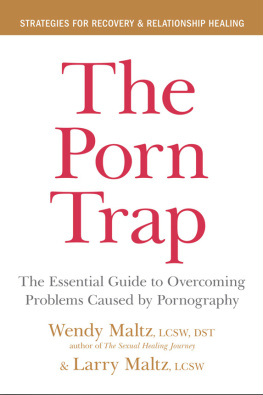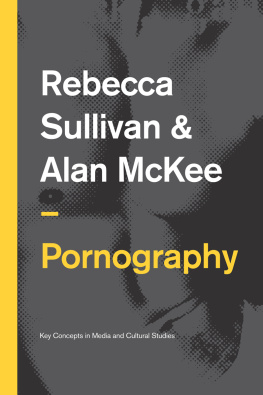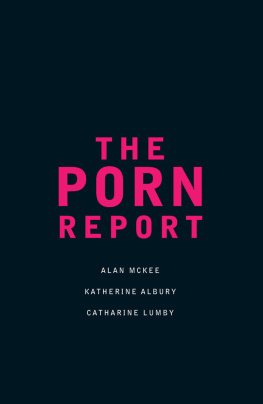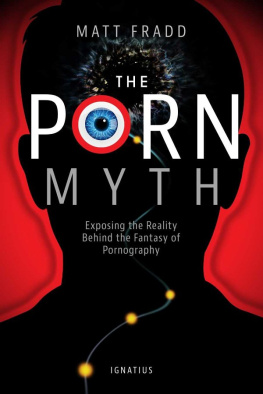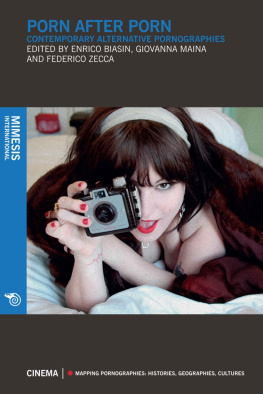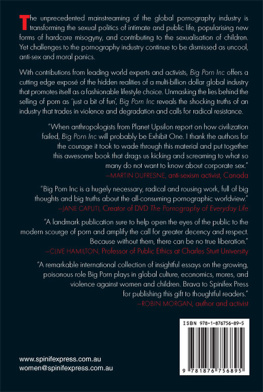
ANTI-PORN
About the Author
Julia Long holds a PhD on feminist anti-pornography activism from London South Bank University. She has a professional background in gender equality policy, education and HIV prevention and support, and she currently works for an organisation combating male violence against women. Julia is a longstanding radical feminist activist and has been an active member of the London Feminist Network and OBJECT.
ANTI-PORN
THE RESURGENCE OF ANTI-PORNOGRAPHY FEMINISM
Julia Long

Anti-Porn: The Resurgence of Anti-Pornography Feminism was first published in 2012 by Zed Books Ltd, 7 Cynthia Street, London N1 9JF, UK and Room 400, 175 Fifth Avenue, New York, NY 10010, USA www.zedbooks.co.uk
Copyright Julia Long 2012
The right of Julia Long to be identified as the author of this work has been asserted by her in accordance with the Copyright, Designs and Patents Act, 1988
Designed and set by Kate Kirkwood
Index by John Barker
Cover designed by Stuart Tolley
All rights reserved. No part of this publication may be reproduced, stored in a retrieval system or transmitted in any form or by any means, electronic, mechanical, photocopying or otherwise, without the prior permission of Zed Books Ltd.
A catalogue record for this book is available from the British Library
Library of Congress Cataloging in Publication Data available
ISBN 978 1 78032 028 1
Dedicated with love to the memory of my mother, Stella Maria Long, and my sister, Catherine Maria Long
CONTENTS
ACKNOWLEDGEMENTS
I would like to thank all at Zed Books for their help and support in ensuring that this book made it through to completion. My very grateful thanks to Tamsine ORiordan, senior commissioning editor, for her constructive feedback, gentle encouragement, persistence and endless patience. Thanks also to Jakob Horstmann for helpful comments in the early stages of writing. I thank Dr Shaminder Takhar and Professor Rosalind Edwards at London South Bank University, who supervised the doctoral research that has informed a substantial part of this book.
I thank my family for their love and support, especially my father John Long and sister Loretta Pearce. Special thanks to my niece Natasha Pearce for an informative conversation about music videos, and to Francesca and Dominic. My love and thanks always to Rosh and Kevin Latham, and Silvana and Saverio Di Donna: vi tengo sempre nel mio cuore e vi ringrazio per tutto. I thank Julie Ashton, Louise Cannon, Penny French and Jude Lobley for the innumerable joys and pleasures of their friendship over many years, and for unfailingly providing a warm and sustaining Yorkshire welcome whenever I have needed it.
I thank all the activists I interviewed as part of my doctoral research. It is a privilege to work with my sister-activists in the London Feminist Network and OBJECT, and in particular I thank Katie Toms, Laurie Oliva, Anna van Heeswijk and Sareyeh Hadian for their love and friendship throughout the writing of this book. My thanks to Finn Mackay for her loyalty, steadfastness, intellectual generosity and generally futile efforts to keep me on task. Heartfelt thanks and gratitude to Sara McHaffie, who miraculously swooped in at the final stages of writing, offering invaluable help with compiling the bibliography, sharing ideas and commenting on draft chapters. At a time when I was particularly isolated and struggling, Saras friendship provided much-needed light and laughter, and I am blessed to count her as a friend.
I thank the many radical feminists from whose work I have benefited immeasurably over many years. I had the good fortune to be taught by a radical feminist in the days when it was not quite the rarity that it is now; I was even more fortunate that that teacher was Susanne Kappeler. I am especially grateful to Gail Dines for her generosity and kindness, and for her vision in building an international network of activists. I thank Lierre Keith, Liane Timmerman, Angela Gbemisola Was Soudjoukjian, Lisa-Marie Taylor, Naomi Stevens and Silvia Murray Wakefield for showing me the meaning of the word solidarity. And I thank the wonderful online community of radical feminist bloggers, whose work is a revelation.
Finally, as a lesbian feminist, I wish to acknowledge the huge debt of gratitude I and many others owe to Sheila Jeffreys. It is no exaggeration to say that her courageous and visionary work has been, for many of us, life-changing.
In these bleak times, to feel part of a radical feminist movement is the most incredible joy and source of sustenance. To all those who have brought me to this place, my debts and thanks are boundless.
To find blasphemy offensive, you would have to believe in God.
To find pornography offensive, you would have to believe in women.
SUSANNE KAPPELER, The Pornography of Representation
If youre lying in a ditch with a truck on your ankle, you dont send somebody to the library to find out how much the truck weighs. You get the truck off.
FLORYNCE KENNEDY
INTRODUCTION
On a warm summer evening in June 2010, a group of around 30 pyjama-clad OBJECT activists gather outside a Tescos store in central London. The pyjamas were a reference to a notice that the supermarket chain had sent out, requesting customers not to wear pyjamas when visiting the store, as some customers found them offensive. Finding a hook via which to convey their message of the harms of pornography porn is more offensive than pyjamas the activists had donned nightwear and congregated for a protest against the sale of lads mags at eye-level in the store. On entering the store, a group of activists set about covering individual lads mags with brown paper bags on which had been written feminist messages, such as This is hate speech and This promotes rape culture. As the display of magazines was quickly transformed into a wall of DIY feminist critique, other activists milled around the store, depositing small cards subvertising Tesco marketing slogans between the cereal packets and cans of beans: Tescos (de)values women; Get rid of lads mags every little helps. At the signal of a whistle, all 30 activists formed a human chain, whipped out some tambourines, and proceeded to dance a conga in and out of the store aisles, chanting Lets get rid of lads mags! When the activists finally left, after much exuberant chanting and dancing around the store, they continued to protest outside the
What is motivating a new generation of feminists to get involved in anti-porn campaigns? A glance around mainstream culture in my own city tells a story of the banality of womens sexual objectification in Western culture in the twenty-first century. Over the past two decades, the mainstreaming of pornography and the expansion of the global sex industry have become increasingly apparent in the UK. Lap-dancing clubs doubled in number between 2004 and 2008, from an estimated 150 to 310 (). Every morning, the newspaper with the largest circulation in the UK continues to serve up a Page 3 picture of a topless woman for its 7 million readers, as it has done for the past forty years.
Alongside its influence on mainstream culture, the pornography industry itself has expanded to unprecedented levels. In 2006, it was estimated to be worth around $96 billion globally, with over 13,000 films released each year, 420 million internet porn pages and 68 million search engine requests for porn daily (: 46). Increasingly, debates take place within media and policy arenas around the effects of pornography on young people, and the sexualisation of girls in particular.
Next page


